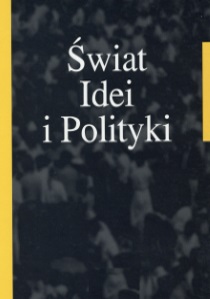Cztery modele wywierania wpływu na podmioty stosunków międzynarodowych w perspektywie konstruktywistycznej. Studium przypadku - Unia Europejska: Chorwacja, Turcja, Izrael, Tunezja
DOI:
https://doi.org/10.34767/SIIP.2013.12.08Abstrakt
The paper presents four theoretical influence models on the actors in international relations. The analysis was conducted on the example of the European Union influence on Croatia, Turkey, Israel and Tunisia. In this article adopted constructivist science perspective. The text, presented the following models: institutional integration, institutional drift, non-institutional co-existence and non-institutional depend[1]ency. First concerns the situation when actors are deprive of part own sovereignty, implemented partner’s legal regulations. Second refers to frameworks, when two cooperating partners (which want to integrate on the same institutional structure) have a big international potential. Consequently -they cannot influence each other. Third -similar perspective, but partners don’t want or can’t integrate on the same institutional structure. Fourth - when the partner who has wider international potential than other, effects on him.

